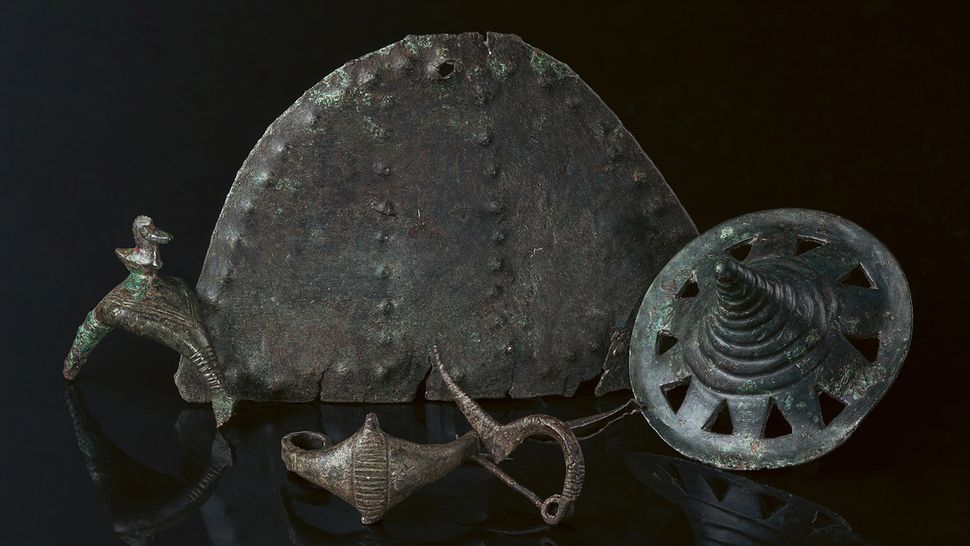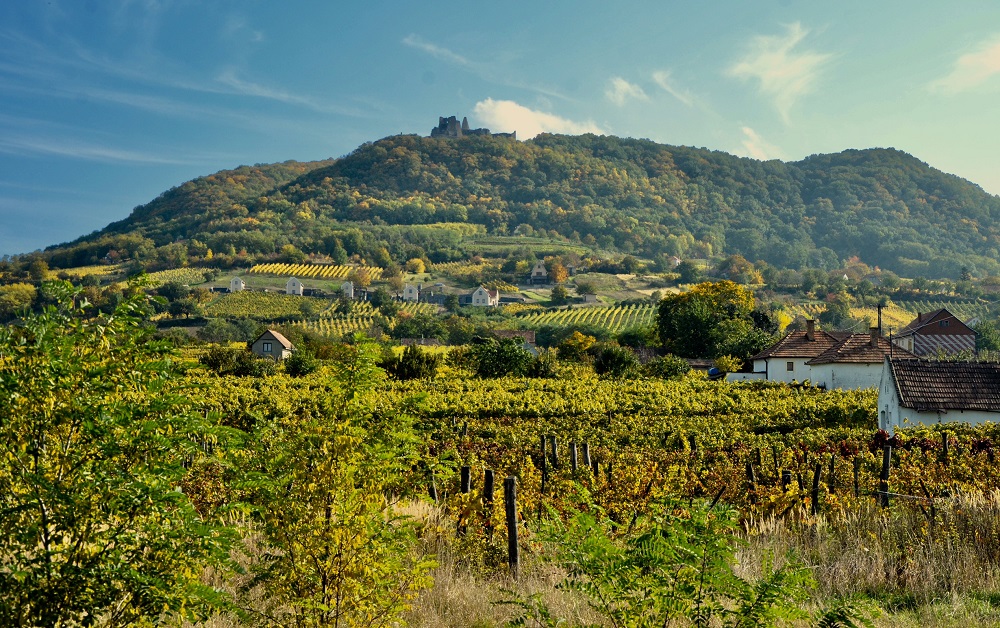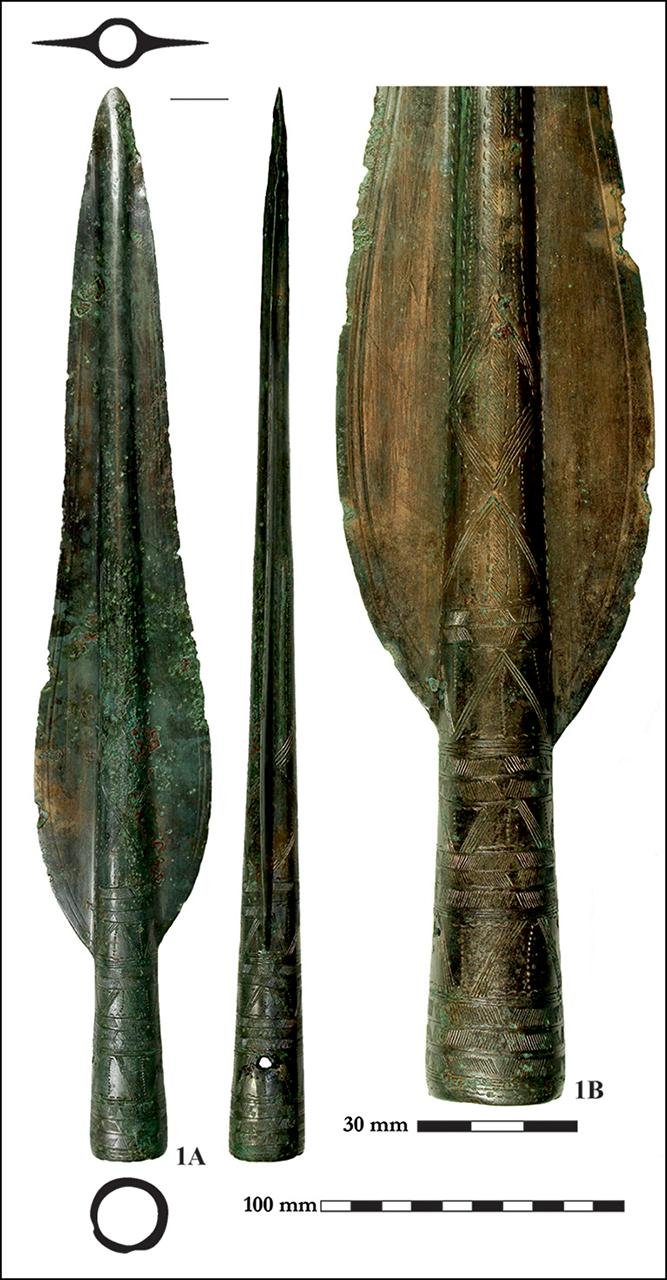Anthropology
Related: About this forumArchaeologists discover hundreds of metal objects up to 3,400 years old on mysterious volcanic hilltop in Hungary
By Margherita Bassi published 2 hours ago
The findings shed light on the ancient people who lived in western Hungary, whose identity continues to confound scholars.

A selection of metal objects
Some of the metal artifacts dating to the Early Iron Age that archaeologists found on Somló Hill in Hungary. (Image credit: Bence Soós et al; Photo by László György; CC BY 4.0)
Ancient people in Hungary hid at least six metal hoards around a mysterious settlement on a lone hill as early as the 15th century B.C., a new study using lasers and fieldwork finds.
In just one year, researchers using metal detectors identified over 300 artifacts from the Late Bronze Age (1450 to 800 B.C.) and the Early Iron Age (800 to 450 B.C.), including jewelry, military decorations and weapons.
The oldest Late Bronze Age findings date back to between 1400 and 1300 B.C., though the majority are Bronze Age artifacts from 1080 to 900 B.C., according to the study, which was published March 27 in the journal Antiquity. In addition to metal assemblages, the team uncovered amber beads, fabric and leather remains, as well as boar and domestic pig tusks.
The archaeological work took place at Somló, a volcanic hill in western Hungary notable for its elevation over a relatively flat landscape. Today, the region is primarily known for its wine production. In the late 19th century, however, scholars realized it was also an important archaeological site when local farmers and wine producers began unearthing ancient artifacts, study first author Bence Soós, an archaeologist-museologist at the Hungarian National Museum, told Live Science in an email.
More:
https://www.livescience.com/archaeology/archaeologists-discover-hundreds-of-metal-objects-up-to-3-400-years-old-on-mysterious-volcanic-hilltop-in-hungary



dickthegrouch
(4,188 posts)I commend you for being so diligent with your commitment to our enlightenment and education with all these wonderful articles on so many areas of scientific endeavour.
I have a tiny complaint, however. I am a slow reader, and all at the same time, these often consume my Sunday! ![]()
I can't possibly read them all, and in truth, I'm afraid of missing any.
I wish all my dichotomies were as intractable.
For many of us: THANK YOU!!!!

